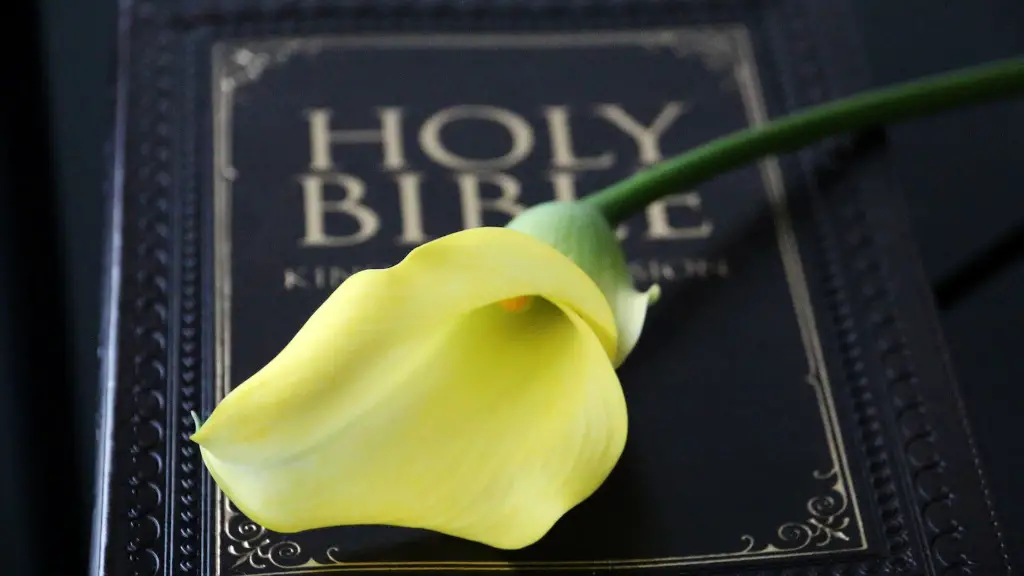What Does The Bible Say About Cremation?
Cremation is becoming increasingly popular in today’s society, and many people are curious about how it is seen in the Bible. Does the Bible promote or discourage cremation, or is it neutral on the subject? Here, we will explore what the Bible has to say about cremation and the beliefs regarding this subject.
The Bible does not openly approve or reject cremation. Even in the Old Testament, when God declared that the Israelites would practice burial for their dead, no specific prohibition against cremation was stated. But that doesn’t mean that the Bible is indifferent to how the body of the dead is treated – both before and after death.
In many ways, biblical teachings promote the honoring of the body. For example, Christians have often laid their dead in graves in the traditional way and have offered respect to the physical form of the deceased. As the Bible emphasizes God’s design of the human body and the importance of the physical element of life, it could be seen as a rejection of mixing ashes with the earth and clouds as God has intended them to remain separate. In fact, Paul writes in 1 Corinthians 6:19-20, “Don’t you realize that your body is the temple of the Holy Spirit, who lives in you and was given to you by God? You do not belong to yourself.” This suggests that the physical body is a gift from God and should be respected.
In the Christian tradition, there is an emphasis on the idea that natural life should lead to a natural death. This may imply a preference for a traditional burial, and could be taken as a rejection of cremation. Many Christians may feel that the body must be placed in the ground, just as naturally as it had come out of it. This is not necessarily supported in the Bible itself, but it is part of a belief among some.
Other potential downsides of cremation are not outlined in the Bible. For example, the process of cremation can be seen as alienating to the family and friends of the deceased. The act of walking together to the grave, the gathering of family and friends around it, and the shared grief may be lost when a cremation is performed.
In any case, cremation is not an all-or-nothing situation. It is possible to combine traditional burial with cremation, as some families choose to bury some of the cremated remains of a deceased loved one. This allows for the ceremony of burial, while also examining the possibility of cremation.
Cremation and Respect for the Death
The Bible does not address whether cremation is respectful of life and death, but the traditional burial ceremony suggests that it is. It is the funeral rites that acknowledge death and the acceptance of the finality of life. This respect is demonstrated through the ritual of gathering family and friends for the memorial service of the deceased.
During such a service, prayers are said, eulogies are shared, stories are exchanged, and offerings of condolences and sadness are offered. This ritual of paying respects is more focused on the beloved person rather than their physical remains.
Also, the human body is the temple of the Holy Spirit and it should be treated with respect and dignity, regardless of the state of the person’s physical body at the time of death.
Cremation in Judaism and Islam
In Judaism, it is forbidden to cremate the dead. This prohibition is based on a few passages in the Old Testament:
* “You shall not make a fire in all your dwelling places on the Sabbath day” (Exodus 20:10).
* “And they brought out the bones of Saul and his sons from the house of Jabesh and burned them there on the height by the Lord” (2 Samuel 21:12).
In these passages, it is clear that cremation is a violation of God’s law. Furthermore, it is said that the burning of the body of a loved one disgusts God. Jews believe that the ashes are not to be adulterated with other materials, but should remain separate and in the ground.
In Islam, cremation is viewed with ambivalence. The Quran neither forbids nor encourages it, though Islamic tradition traditionally prefers burial. However, if circumstances require cremation, then it is permissible.
The Argument for Cremation
Despite the potential cultural and religious issues surrounding cremation, there are several practical arguments for the practice. One such argument is that it is less expensive than traditional burial because it does not require a casket, a burial vault, or a gravesite. Also, cremation can be done faster than a traditional burial, which is sometimes beneficial for families who are grieving and want to quickly move onto the next steps of the grieving process.
Another aspect to consider is that cremation allows the deceased to have a more permanent burial site as the ashes can be scattered or placed at a memorial. This can provide a physical place for mourners to visit and remember the deceased person.
Conclusion
Cremation can be a personal choice, and the Bible does not provide clear instructions on whether it should be supported or discouraged. However, many Christians, Jews, and Muslims are still mindful of what the Bible and other sacred texts say about treating the body after death, and all religions promote the respect of the deceased in one way or another. Ultimately, the decision should be made based on the beliefs and wishes of the deceased and the family of the deceased.

